
The projects Life+ Climagri is collaborating with, sharing information and experience and planning joint activities with are as follows:
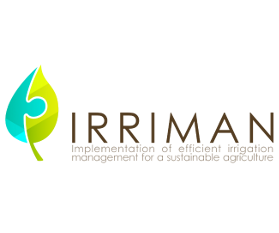
Irriman Life+ PROJECT: Implementation of efficient irrigation management for a sustainable agriculture
Irriman Life+ is a project cofinanced by European Union which principal objetive is put into practice, demostrate and spread a sustanaible irrigation in differents woody crops to promote their acceptation on a large scale in Mediterranean agroecosystem, characterized for water scarcity, without affecting negatively the final fruit quality.
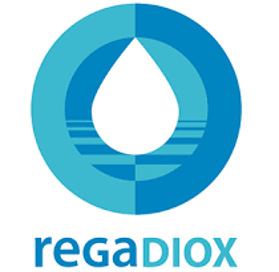
LIFE Regadi-OX PROJECT: Stabilisation of atmospheric CO2 and greenhouse effect reduction during a sustainable management of the irrigated agriculture
The LIFE Regadi-OX project has as main objective to design, show, test, and spread the impact that an improved model of sustainable management of the irrigated agriculture, integrated in land policies and in Navarre rural strategies, can have in the climate change effects (capturing CO2 and reducing Greenhouse Gas Emissions/GEI). More information at http://life-regadiox.es/en/.

SOLMACC PROJECT: Strategies for Organic and Low input farming to Mitigate and Adapt to Climate Change
In the LIFE project SOLMACC (Strategies for Organic and Low input farming to Mitigate and Adapt to Climate Change), twelve organic farms in Sweden, Germany and Italy apply climate-friendly practices and are expected to reduce greenhouse gas emissions by about 15% compared to average farms under similar climatic conditions, as well as improve adaption to the negative effects of climate change. The applied practices include:
- Optimised on-farm nutrient recycling.
- Optimised crop rotation.
- Reduced tillage.
- Agroforestry.
They are adapted to the specific climatic area and farm conditions and are closely monitored by scientists. More information at http://www.solmacc.eu
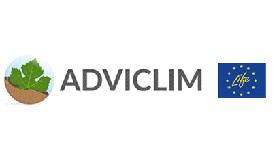
LIFE ADVICLIM PROJECT: ADapatation of VIticulture to CLIMate change: High resolution observations of adaptation scenario for viticulture
In the current context of climate change, the wine industry is facing multiple challenges, including adapting its practices and reducing greenhouse gas emissions related to its activities.
In response to these challenges, recognising the need to assess climate and its impact on viticulture at the vineyard scale, the LIFE-ADVICLIM project aims to study climate change adaptation and mitigation scenarios for a range of vineyards which represent the climatic diversity of European wine regions.
The project’s measurement network and web platform will enable wine producers to assess the impacts of climate change on their plots, simulate adaptation scenarios, and measure the greenhouse gas emissions related to their practices. These technologies are being tested on demonstration sites in five European vineyards regions: Cotnari, Rheingau, Bordeaux, Sussex and Val de Loire. More information at http://www.adviclim.eu/
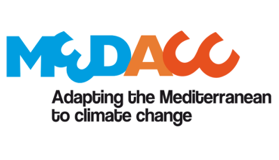
LIFE MEDDAC PROJECT: Demonstration and validation of innovative methodology for regional climate change adaptation in the Mediterranean area
MEDACC aims at testing innovative solutions in order to adapt agro-forest and urban systems to climate change in the Mediterranean basin. Thus, MEDACC contributes to the design and implementation of adaptive strategies and policies which are being developed at national and regional level in the Euro-Mediterranean area. In Catalonia, MEDACC will be a key tool in the implementation of the Catalan Strategy for Climate Change Adaptation (ESCACC 2013-2020). More information at http://medacc-life.eu
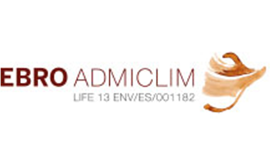
PROYECTO EBRO-ADMICLIM: Mitigation and adaptation measures to climate change in the Ebro Delta
The project puts forwards pilot actions for adaptation to and mitigation of climate change in the Ebro Delta (Catalonia, Spain), an area vulnerable to sea level rise and subsidence.
We propose an integrated approach for managing water, sediment and habitats (rice fields and wetlands), with the multiple aim of optimizing ground elevation (through inputs of inorganic sediment and organic matter), reducing coastal erosion, increasing the accumulation (sequestration) of carbon in the soil, reducing emissions of greenhouse gases (GHG), and improving water quality. More information at www.lifeebroadmiclim.eu/en/
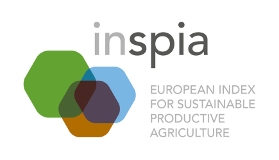
INSPIA PROJECT: European Index for Sustainable Productive Agriculture
The INSPIA project is an initiative that promotes the use of Best Management Practices that protect the ecosystem services provided by biodiversity and which contribute to the protection of natural resources. The project includes the participation of the European Conservation Agriculture Federation (ECAF), the European Crop Protection Association (ECPA), the French Institute for Sustainable Agriculture (IAD), the Spanish Association for Conservation Agriculture Living Soils (AEAC.SV), its French equivalent, the Association for the Promotion of Sustainable Agriculture (APAD) as partners and also the collaboration of the Business Association for the Protection of Plants (AEPLA). More information at www.inspia-europe.eu/.

PROYECTO TOPPS Water Protection
The main goal of the TOPPS project is to establish a practical, efficient system to prevent water pollution from various sources. This initiative, financed by the European Crop Protection Association (ECPA) and with the participation of the University of Córdoba, the Business Association for the Protection of Plants (AEPLA) and the Polytechnic University of Catalonia, was launched in the year 2011 under the name of TOPPS PROWADIS and is being executed in seven countries of the EU. More information on www.proyectotopps.es/.




